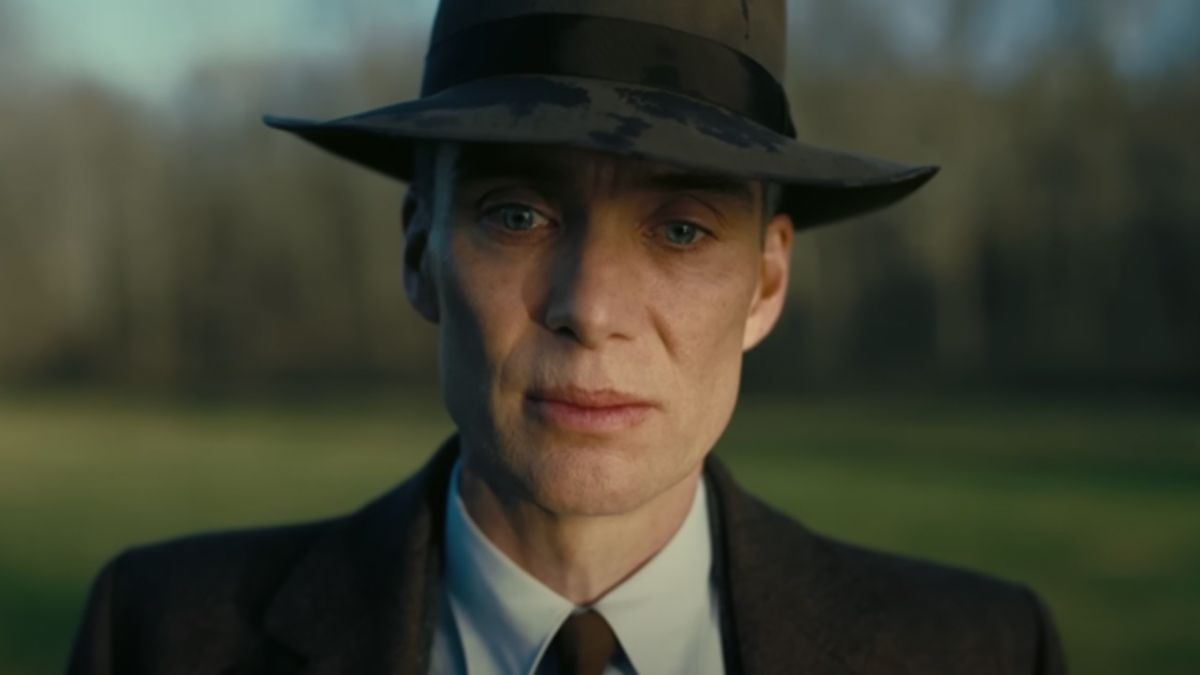From that open-ended finish in The Dark Knight Rises to the dreamy conclusion of Inception, Christopher Nolan is known for the thought-provoking finales he tacks onto his powerhouse films. And the director’s latest cinematic epic, Oppenheimer, is no exception, as star Cillian Murphy recently noted in a dual interview for Deadline.
Murphy is a veteran of the Nolan Cinematic Universe. Outside of the legendary Michael Caine (who, yes, was curiously absent from that star-studded Oppenheimer cast), he’s the actor who has appeared in the most Christopher Nolan movies. He’s very well-versed in a Nolan script, including those signature, mind-bending finales. But Cillian singled out the final sequence of the director’s J. Robert Oppenheimer biopic, calling the film’s chilling close “extraordinary” and “genius”:
I’m all about third acts and endings, and when I read the script, that time in Dublin, knowing that’s one thing Chris always nails, I remember thinking, ‘What a fucking ending.’ It’s extraordinary. And that’s from Chris’s imagination. It’s not from history, but it’s just genius. You can write an extraordinary script, but you can write yourself into a corner and the audience feels shortchanged if you don’t nail the fucking ending.
Spoiler alert for anyone who hasn’t yet seen Oppenheimer—which, given the fact that the biographical drama made nearly a billion dollars at the box office, seems like only a few of you—the final scene of the film sees the audience finally getting to hear exactly what Murphy’s Oppenheimer says to Einstein (played by Tom Conti).
Throughout the entire movie, petty bureaucrat Lewis Strauss (Robert Downey Jr., on track to snag the 2024 Oscar for Supporting Actor for his work here) believes that the encounter between Oppenheimer and Einstein is a slight against him, an insecurity that rages on until Strauss works to revoke Oppenheimer’s security clearance and render him a pariah in the science community.
However, the real topic of their conversation was far less personal and far more hauntingly philosophical, about the life-changing ramifications caused by the scientists’ decision to detonate the atomic bomb and potentially destroy the entire world.
Those larger philosophical questions about the Manhattan Project and the Trinity Test were paramount to Nolan, who meticulously placed “key shifts” throughout the script, culminating in that horrific climax between Oppenheimer and Einstein. The director told Deadline:
As you put a script together, you try and focus in on things like, what’s the key idea that has to work here? What are the key shifts that you need the audience to be struck by? And in the case of Oppenheimer, it was very clear to me that the whole purpose of the screenplay is to go from the absolute highest high of triumph, with Trinity, to the sheer lowest low of the realization of Hiroshima, in as short a time as possible.
Christopher Nolan’s script was clearly successful in creating those tonal shifts and absolutely nailing the ending—Oppenheimer is up for Best Adapted Screenplay at this year’s Academy Awards (the film is based on the book American Prometheus: The Triumph and Tragedy of J. Robert Oppenheimer by Kai Bird and Martin J. Sherwin), along with nods for Nolan’s direction and for Cillian Murphy‘s performance.
You can revisit Nolan’s “genius” finale to Oppenheimer by streaming the biopic with a Peacock subscription.
